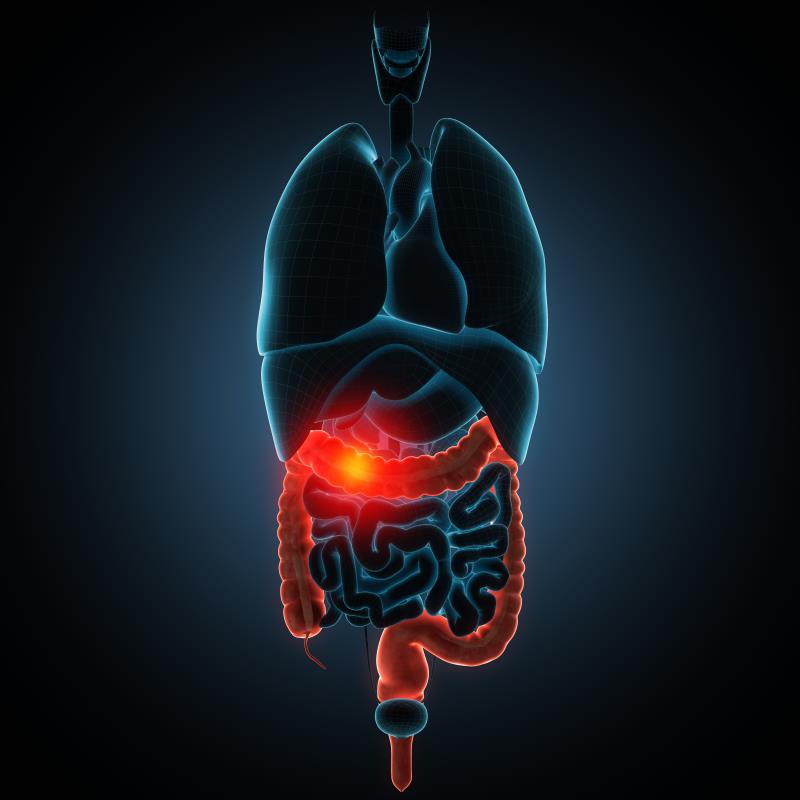
Mirikizumab, a monoclonal antibody targeting interleukin-23, induces clinical response in ulcerative colitis (UC) patients in 12 weeks, a recent study has found.
Researchers randomly assigned patients with moderate to severely active UC to receive intravenous mirikizumab 50 mg (n=63; mean age, 41.8±14.1 years; 39.7 percent female) or 200 mg (n=62; mean age, 43.4±14.7 years; 40.3 percent female) with exposure-based dosing, mirikizumab 600 mg (n=61; mean age, 42.4±13.4 years; 37.7 percent female) with fixed dosing, or placebo (n=63; mean age, 42.6±13.5 years; 42.9 percent female). Clinical remission at week 12 was the primary endpoint.
Around 73 percent and 44 percent of patients taking the 50-mg and 200-mg medication had their doses adjusted, such that the overall average doses in these groups during the 12-week study period were 100 and 250 mg, respectively.
Only three patients (4.8 percent) in the placebo group achieved clinical remission by week 12, whereas ten patients (15.9 percent, 95 percent confidence interval [CI], 6.8–24.9; p=0.066) did in the 50-mg group.
On the other hand, 14 (22.6 percent; 95 percent CI, 12.2–33.0; p=0.004) and seven (11.5 percent; 95 percent CI, 3.5–19.4; p=0.142) patients taking the 200-mg and 600-mg mirikizumab doses showed clinical remission.
Clinical response rates were 41.3 percent, 59.7 percent and 49.2 percent in the 50-mg, 200-mg and 600-mg mirikizumab groups, respectively, as compared to only 20.6 percent in placebo patients.